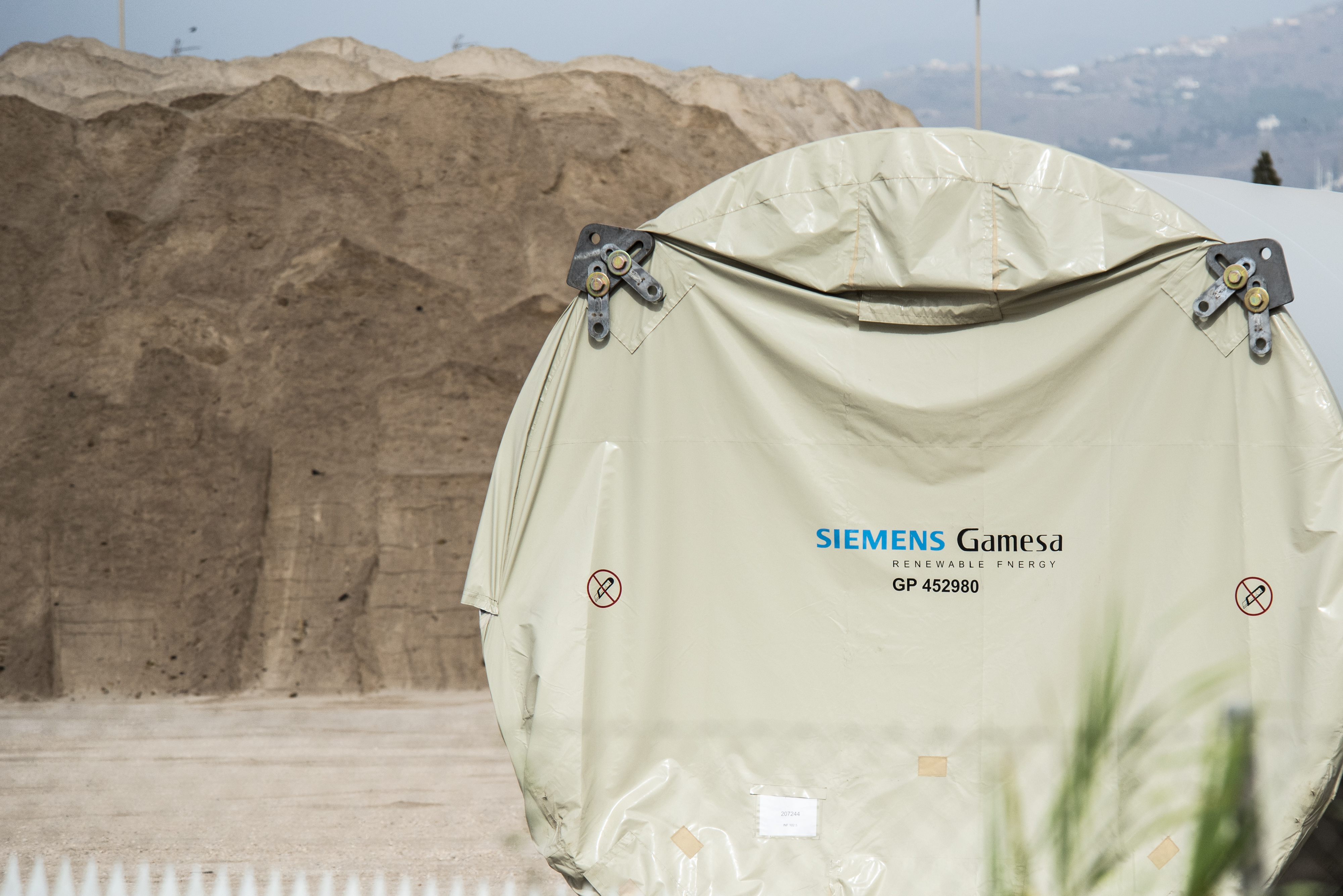La multinationale allemande, qui approvisionne les projets marocains de production d'énergie dans le territoire occupé, ne comprend pas les décisions de la Cour de justice de l'UE.
WSRW était présent la semaine dernière lorsque l'entreprise brésilienne Votorantim a reçu, à Tenerife en Espagne, une cargaison de sable en provenance du Sahara Occidental occupé.
WSRW condamne fermement le mépris flagrant d'Engie pour le droit international au Sahara Occidental occupé.
La multinationale française refuse de clarifier le lien entre son accord monstre avec la compagnie nationale marocaine de phosphates et le Sahara Occidental occupé.
Kosmos Energy a finalement supprimé un site Internet créé pour vanter ses activités d'exploration pétrolière et gazière au large du Sahara Occidental.
La multinationale française ne répondra pas aux questions sur sa participation potentielle dans un projet d'énergie éolienne au Sahara Occidental occupé en partenariat avec le Premier ministre marocain.
L'entreprise émirienne Dahamco, liée à la Belgique, va investir plusieurs milliards de dollars dans un projet de production d'énergie très problématique sur un territoire occupé.
C'est aujourd'hui le 20e anniversaire de Western Sahara Resource Watch.
La Cour de justice de l'UE a rejeté la demande de la Commission Européenne de rectifier des paragraphes spécifiques de ses arrêts de 2024. Cette dernière se demandait si la majorité de la population du Sahara Occidental vit en dehors du territoire.
Dans une note juridique, le Conseil de l’UE admet que la plus haute juridiction de l’UE a définitivement annulé les accords de commerce et de pêche UE-Maroc tels qu’ils s’appliquaient au Sahara Occidental, marquant une victoire claire pour la lutte du peuple sahraoui pour l’autodétermination.
La confirmation de la Cour française intervient une semaine après que des représentants du secteur agricole espagnol ont appelé l'UE à mettre fin aux importations de tomates en provenance du Sahara Occidental.
Trois mois se sont écoulés depuis que la Cour de justice de l'UE a interdit les accords commerciaux UE-Maroc au Sahara Occidental occupé. La Commission européenne ne sait toujours pas comment s'y prendre.
La Commission européenne a informé l'industrie aéronautique que le Sahara Occidental ne fait pas partie de l'accord aérien conclu entre l'UE et le Maroc.
Construction d'une usine de carburant très problématique au Sahara Occidental occupé en 2027.
L'incendie criminel semble avoir des motivations politiques au vu des graffitis anti-Sahara Occidental et pro-Maroc peints à la bombe devant le bureau de l'ONG Global Aktion à Copenhague, au Danemark.
GE Vernova, Siemens Energy et Larsen & Toubro font partie des multinationales qui auraient manifesté leur intérêt pour aider le Maroc à transporter vers le Maroc l'énergie produite au Sahara Occidental occupé.
Alors que le gouvernement français ignore le droit international au Sahara occidental, il met ses propres entreprises en danger, prévient WSRW.
La compagnie aérienne irlandaise a annoncé l'ouverture d'une nouvelle ligne vers Dakhla au « Maroc », saluant la puissance occupante pour son « soutien et sa vision dans la sécurisation de cet investissement majeur »
… en seulement un an, et dans le cadre du seul accord commercial UE-Maroc.
WSRW propose ici un résumé les principales conclusions des arrêts historiques rendus le 4 octobre 2024 sur le Sahara Occidental par la Cour de justice de l'UE.



















